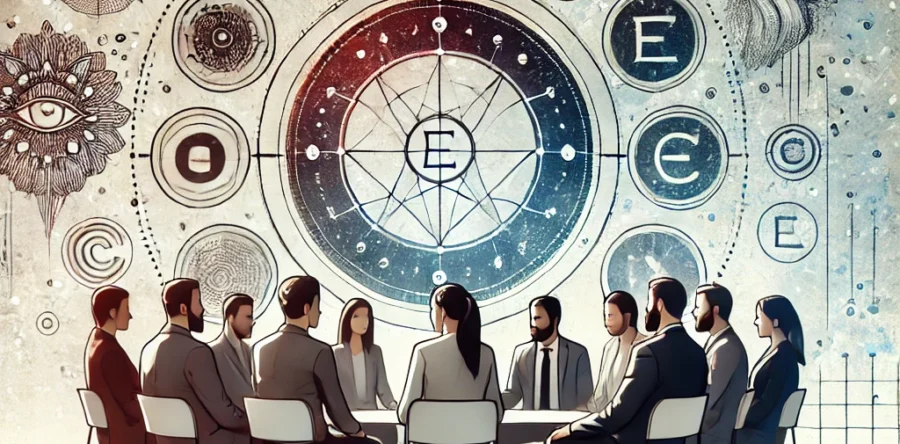Effective Collaborative Practice hinges on maintaining healthy dynamics, not just between clients, but also amongst team members. In this upcoming advanced training session, we will explore how our personalities shape interactions within our collaborative teams. While we may not always have the luxury of hand-picking our team members or predicting client behaviors, gaining insight into the personalities involved can significantly enhance our ability to manage both client and team dynamics.
Understanding personality types is crucial for several reasons. First and foremost, it fosters self-awareness among team members, allowing them to recognize their own motivations, strengths, and weaknesses. This awareness is essential in any collaborative environment, as it lays the foundation for empathy and effective communication. When team members understand their personalities and those of their clients, they can tailor their approaches to meet the unique needs of each situation.
Moreover, recognizing different personality types can help mitigate conflicts before they escalate. In collaborative practice, where emotions can run high, understanding why a client or team member reacts a certain way can transform potentially volatile interactions into constructive dialogues.
Our training will introduce a matrix of nine universal cross-cultural personality types, each characterized by distinct perspectives, strategies, core interests, and fears. This framework, known as the Enneagram, has been utilized in conflict management and mediation for years, providing valuable insights into human behavior. For more information about why knowing your Enneagram type can be helpful, visit our trainer’s webpage on the topic at https://inspiritdeepcoach.com/about-us/the-enneagram/
Here are the nine personality types with their chief characteristics. The names were created by the late Dr. David Daniels, M.D., who taught the Enneagram at Stanford University’s School of Medicine. The description of the characteristics is from our trainer, Anu Osborne.
Type 1: “The Perfectionist”
Highly organized and driven. Focused on efficiency and correctness. Rational and self-disciplined. Looks for ways to improve procedures and maintain high standards.
Type 2: “The Giver”.
Encouraging, supportive and appreciative of others. Humble and sincere. Effective at mentoring. Skilled at networking.
Type 3: “The Achiever”
Ambitious and energetic. Goal-oriented and industrious. Persistent and effective. Attracts others through charisma. Often outstanding in their position.
Type 4: “The Romantic”
Intuitive and sensitive. Individualistic and true to personal feelings. Able to focus on details that will result in the highest quality products or services. Creative and inspired.
Type 5: “The Observer”
Observant, intelligent and curious. Inventive, open-minded, able to see problems in new ways. Visionary. Detail-oriented and technical. Able to master skills and knowledge.
Type 6: “The Loyal Skeptic”
Loyal and trustworthy. Fosters strong relationships and cooperation. Committed to causes. Able to anticipate and troubleshoot problems and challenges. Seeks to create stability.
Type 7: “The Epicure”
Enthusiastic and upbeat. Multitalented and able to adapt well to new ideas and innovations. Able to create enthusiasm for projects and plans in others. Unafraid of change, seeks new possibilities.
Type 8: “The Protector”
Confident and resourceful. Decisive. Strong and protective, stands up for others. Attracts others through initiative and ability to take charge.
Type 9: “The Mediator”
Good-natured and friendly. Able to ease tensions and support group harmony. Easygoing. Trusting of others. Able to work with anyone and allow others to stand out.
By identifying your personality type and recognizing those of your clients and team members, you will increase your self-awareness and deepen your understanding of why individuals operate the way they do. This knowledge is transformative—it enhances your ability to manage team and client dynamics effectively, leading to a more collaborative and productive environment.
During the training, we will have the opportunity to identify your type. You will also gain insight into those of others you work with.
Join us for this advanced training session on Personality and Team Dynamics, where you will gain valuable insights into the personalities at play in your collaborative practice. As we explore the nine universal cross-cultural personality types, you will walk away with increased self- and other-awareness, so that you can improve team interactions and more effectively manage client dynamics. Together, we can create a more collaborative and harmonious environment that benefits everyone involved.
Register for the Advanced Training taking place on October 24th at 1pm ET.



